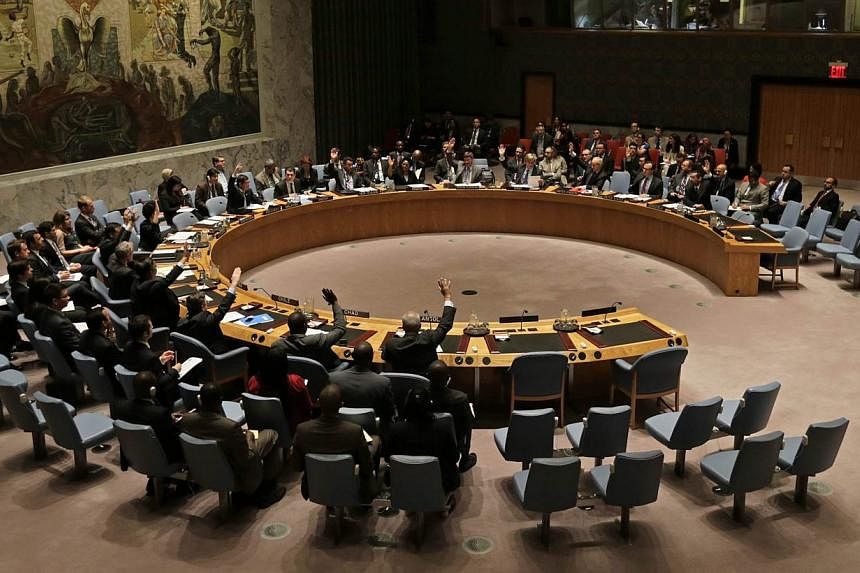UNITED NATIONS, United States (AFP) - Former United States secretary of state Madeleine Albright and a coterie of veteran diplomats are calling for major changes to the United Nations (UN) in a report released Tuesday ahead of the world body's 70th anniversary.
The report taps into the latest, more adamant calls for UN reform, a much-debated topic that has repeatedly failed to gain traction among the five permanent Security Council members who wield power at the UN.
It calls for expanding the Security Council, restricting veto use and creating new fora to address climate change, cybersecurity, the new development goals and peacebuilding.
Along with Dr Albright, who also served as Washington's UN envoy, the commission is co-chaired by Mr Ibrahim Gambari, a former foreign minister of Nigeria and ex-political affairs chief at the UN.
Six ex-foreign ministers from Brazil, Canada, India, Japan, the Netherlands and Tanzania are among the members of the panel that penned the 130-page report.
Mr Gambari told AFP in an interview that it was time to address a "crisis in global governance" by making the UN better able to confront new threats.
"We want to really build a global constituency in favor of change," he said.
Unfair Security Council
The UN has remained largely unchanged since its creation after World War II, when 50 countries led by world powers came together, hoping the world body would work to safeguard peace and security.
Tackling one of the most contentious issues, the panel calls for enlarging the Security Council, the 15-member club that Mr Gambari said was widely perceived as "unfair" in its current structure.
Resentment has been growing over the powers of the council's P5 - Britain, China, France, Russia and the United States - which can veto any council decision.
But the report is short on details, sidestepping difficult questions on how many new countries should be allowed in the council and how to carve out regional representation.
Equally contentious is debate on restricting the veto, which has been used by Russia and China to block Security Council action to end the bloodshed in Syria.
The report proposes creating a new voting mechanism that would allow permanent members to cast a "no" vote without resorting to a full-blown veto and standing in the way of action.
"The veto was not made to be used to the extent it is now being used to delay action by the council on some of the most horrendous humanitarian situations," said Mr Gambari.
The commission hopes to lay the groundwork for changes over the next five years, with decisions to be made at a World Conference on Global Institutions in 2020, when the UN turns 75.

